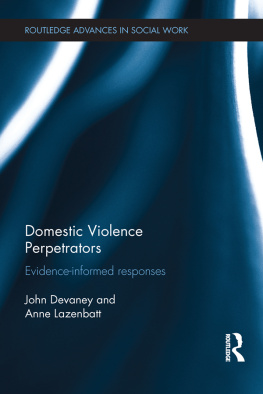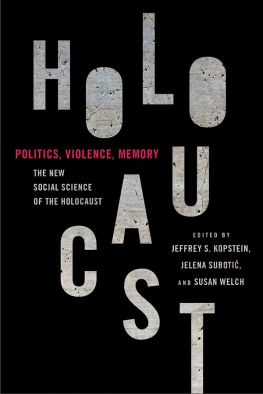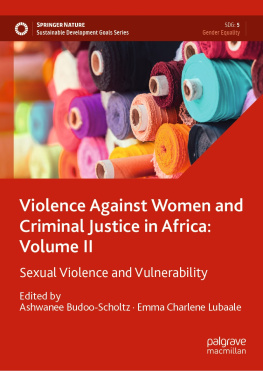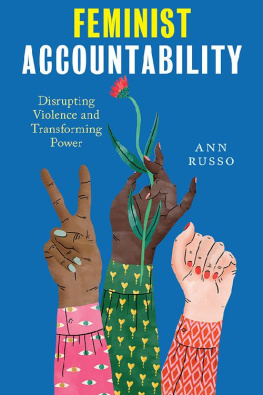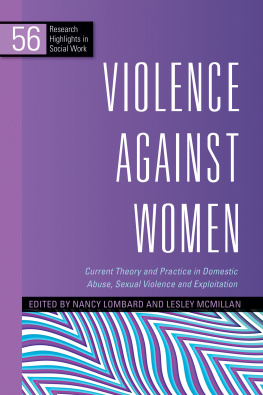
This book stands high in my list of best social work books. Rooted in the authors own life and work in Northern Ireland, the book has humanity and authenticity. The frequent examples ground Heerys work in fascinating detail, revealing the messy reality of practice through a series of conversations. The book is a powerful exposition of the complex dynamic of the personal, the professional and the political in the context of communal and common violence. I strongly recommend it.
Mark Doel, Emeritus Professor, Sheffield Hallam University
When reading this book you will feel like you are having a conversation with Gerry Heery and you will learn so much from his compassion, humility, and wisdom derived from many years of working with people who have been violent.
Tim Chapman, Visiting Lecturer, Ulster University
Social workers and other helping professionals often work with both the victims and perpetrators of violence often at the same time. In this illuminating book Gerry Heery has brought his wealth of practice experience to doing what many other books fail to do setting out how to engage and work with those who are violent towards others in their everyday relationships. Underpinned by sound academic scholarship, this is a well-written and helpful resource, and both new and experienced practitioners will find it an invaluable aid.
John Devaney, PhD, Centenary Professor of Social Work, University of Edinburgh
Promoting Non-Violence
The use of violence within relationships, families or communities is a major public health issue across the world. As such, it will continue to require global, strategic and preventative measures across educational, social care and criminal justice systems. This book draws upon the authors gritty practice experience, social work values, knowledge and research to provide detailed guidance on how to best respond directly to those who carry out this common violence.
Eight face-to-face conversations between a social worker and the person using violence are depicted and used to present the necessary elements for a dialogue which continually seeks to promote non-violence. These conversations pick up on some key messages from the successful Northern Ireland Peace Process and are firmly rooted in social work practice. They will also contribute to the difficult risk decisions that always need to be taken when violence is being used. The reader is offered choice and discretion as to how these conversations can be used by social workers, from short opportunity-led interactions to lengthier, more structured interventions promoting non-violence.
Offering a positive response to the challenge of common violence in a clear and accessible manner, this book should be considered essential reading for students, researchers and practitioners. The authors royalties will be donated to a third world charity project working with victims of domestic violence.
Gerry Heery is a registered Independent Social Worker, Trainer and Consultant. He began his career as a residential social worker in 1978 and has continued to work with people across the family and childcare and criminal justice systems in Belfast and Northern Ireland. Much of his practice has been with those whose use of violence is causing harm and distress within relationships, families and communities. He has contributed to, developed and published a range of interventions aimed at helping those who have been using such violence to desist.
He lives in Belfast with his wife Mire, and has five children and two grandchildren.
Promoting Non-Violence
Social Work Conversations about Violence
Gerry Heery
First published 2019
by Routledge
2 Park Square, Milton Park, Abingdon, Oxon OX14 4RN
and by Routledge
711 Third Avenue, New York, NY 10017
Routledge is an imprint of the Taylor & Francis Group, an informa business
2019 Gerry Heery
The right of Gerry Heery to be identified as author of this work has been asserted by him in accordance with sections 77 and 78 of the Copyright, Designs and Patents Act 1988.
All rights reserved. No part of this book may be reprinted or reproduced or utilised in any form or by any electronic, mechanical, or other means, now known or hereafter invented, including photocopying and recording, or in any information storage or retrieval system, without permission in writing from the publishers.
Trademark notice: Product or corporate names may be trademarks or registered trademarks, and are used only for identification and explanation without intent to infringe.
British Library Cataloguing-in-Publication Data
A catalogue record for this book is available from the British Library
Library of Congress Cataloging-in-Publication Data
Names: Heery, Gerry, author.
Title: Promoting non-violence: social work conversations about violence / Gerry Heery.
Description: Abingdon, Oxon; New York, NY: Routledge, 2019. | Includes bibliographical references and index.
Identifiers: LCCN 2018026706 | ISBN 9781138097551 (hardback) | ISBN 9781138097575 (pbk.) | ISBN 9781315104829 (ebook)Subjects: LCSH: Social servicePractice. | Nonviolence. | ViolencePrevention.
Classification: LCC HV10.5 .H393 2019 | DDC 363.32dc23LC record available at https://lccn.loc.gov/2018026706
ISBN: 978-1-138-09755-1 (hbk)
ISBN: 978-1-138-09757-5 (pbk)
ISBN: 978-1-315-10482-9 (ebk)
Typeset in Bembo
by codeMantra
For Dire and Ronan
Contents
Part I
Engaging with common violence
Part II
Promoting non-violence : the eight conversations and the wall
Engaging with people who were using violence within some aspect of their life has been a feature of my social work career from my early experiences as a student on placement in the mid-1970s. Since then I have worked across a range of situations in which I have been able to keep developing my practice within this area. There have been difficult times, but through it all I have been supported and inspired by many colleagues, too numerous to mention. These have been fellow practitioners, as well as those in educational, management and governance settings. This has continued throughout my career. I want to acknowledge this empowering, creative and dynamic Northern Irish Social Work context within which I have been privileged to work. It has contributed greatly to the ideas presented in this publication.
A much smaller group of people have had more involvement in the production of this book:
Kathleen Creaney, a Belfast-based social worker, read and provided feedback on much of the manuscript with wonderful insights and comments.
Mark Doel, with whom I was involved in relation to other matters, took the photograph of the Belfast peace wall (see p. 5) during one of his visits to Belfast.
Several other people kindly read the draft introduction and encouraged me to persevere. These were Christine Smith, Social Work lead within the Department of Health in Northern Ireland, Catherine Maguire, Paul Rooney, Marian ORourke and Sharon Mc Ateer (Northern Ireland Social Care Council), Judith Mullinieux, and Mary Mc Colgan from Ulster University, and Carole Kirk (Northern Health and Social Care Trust).


